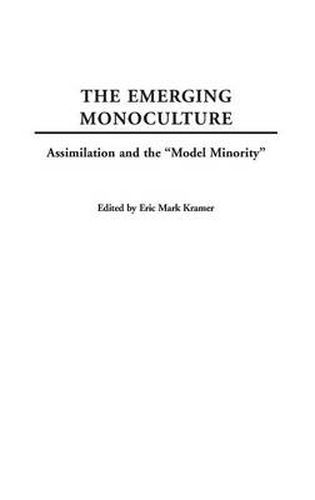Readings Newsletter
Become a Readings Member to make your shopping experience even easier.
Sign in or sign up for free!
You’re not far away from qualifying for FREE standard shipping within Australia
You’ve qualified for FREE standard shipping within Australia
The cart is loading…






Kramer brings together experts from a variety of minority backgrounds and from around the world to give their perspectives on the most pervasive ideology today, globalism. The basic premise is that a developed country is different from a developed community. They need not be mutually exclusive, but neither is it assumed that they are necessarily consonant.
The various essays offer answers to such vital questions as What does it mean to become a ‘global citizen’? and What does it mean to be a ‘model minority’ in a global economy? The process of becoming a mainstream person involves being first marginalized with the implication that something is inadequate about one’s self. The process of assimilationism is manifested as various forms of enforced and/or rewarded acculturation. With the vast human migration currently underway, the notion of assimilation has become a global phenomenon. What is occurring, Kramer and his colleagues demonstrate, is a worldwide shift from the village milieu to the city lifestyle. This migration is seen as a polycentric and global phenomenon whereby the promised land is nowhere in particular, but, instead, a way of life and mindset, an urban lifestyle. This process is far more than a simple change in geography. Moving from the village to the cityscape involves a mutation in worldview and self-identity. Additional questions asked throughout the collection are What set of persuasive assumptions are leading the world in this direction? and What might be lost in the process? A provocative collection for scholars, students, and other researchers involved with development studies, multiculturalism, and urbanization.
$9.00 standard shipping within Australia
FREE standard shipping within Australia for orders over $100.00
Express & International shipping calculated at checkout
Kramer brings together experts from a variety of minority backgrounds and from around the world to give their perspectives on the most pervasive ideology today, globalism. The basic premise is that a developed country is different from a developed community. They need not be mutually exclusive, but neither is it assumed that they are necessarily consonant.
The various essays offer answers to such vital questions as What does it mean to become a ‘global citizen’? and What does it mean to be a ‘model minority’ in a global economy? The process of becoming a mainstream person involves being first marginalized with the implication that something is inadequate about one’s self. The process of assimilationism is manifested as various forms of enforced and/or rewarded acculturation. With the vast human migration currently underway, the notion of assimilation has become a global phenomenon. What is occurring, Kramer and his colleagues demonstrate, is a worldwide shift from the village milieu to the city lifestyle. This migration is seen as a polycentric and global phenomenon whereby the promised land is nowhere in particular, but, instead, a way of life and mindset, an urban lifestyle. This process is far more than a simple change in geography. Moving from the village to the cityscape involves a mutation in worldview and self-identity. Additional questions asked throughout the collection are What set of persuasive assumptions are leading the world in this direction? and What might be lost in the process? A provocative collection for scholars, students, and other researchers involved with development studies, multiculturalism, and urbanization.